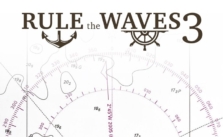Rule the Waves 3: Diplomacy, Alliances and Negotiations

In Rule the Waves 3, your strategic decisions extend far beyond naval operations and into the realm of international diplomacy. This involves managing treaties, forming alliances, and navigating peace negotiations.
Treaties
Engaging in Disarmament Conferences
The outcomes of disarmament conferences are influenced by how you respond to in-game events. Hardline or ‘tough’ responses could raise tensions, while more conciliatory responses might enhance the chances of a treaty being formed.
Understanding Treaty Terms
A treaty outlines the limit on displacement and the main armament caliber for new ships, as well as the total warship tonnage allowed for all nations. Make sure to understand these terms before proceeding. During negotiations, you can have an input on the conditions or recommend against the treaty entirely.
Managing Construction in Accordance with the Treaty
Any ships under construction at the time of treaty signing that do not meet the treaty’s terms will have to be scrapped. It’s important to plan your shipbuilding strategy around possible treaty terms to avoid waste.
Adhering to the Treaty
If your government is a liberal democracy, adherence to the treaty is strictly enforced. However, if you’re playing a different form of government, you might ‘cheat’ up to 10% of the displacement. There’s no wiggle room on the main caliber, though.
Alliances
Forming Alliances
Alliances can be formed with other nations, reducing tension, aiding in war, and promoting technological exchange. Consider the strategic benefits of each potential ally before forming a pact.
Managing Allies
Be aware that allies can pull you into conflicts due to their foreign policy, and the existence of the alliance might raise tensions with other nations. Keep track of your allies’ actions and the potential repercussions.
Monitoring Tension
Alliances can be revoked if tension rises between allies. This is especially likely if one nation is a liberal democracy and the other is fascist/communist. However, during a war, alliances will not be revoked. However, an ally may seek a separate peace if tensions rise significantly.
Peace Negotiations
Engaging in Peace Negotiations
During a war, there will be events relating to possible peace negotiations. Your responses to these events will influence the likelihood of reaching a peace agreement and also the nature of that agreement.
Understanding War Outcomes
Winning a war can lead to increased base resources, additional territories, or even ships from the enemy’s fleet. Conversely, losing a war can result in the loss of resources, territories, or military assets.
Gaining from Victory
Upon victory, when you acquire territories or assets, you can select from a list of enemy assets, up to a predetermined value limit. Unused points can increase your base resources. You can decline to take any possessions and be satisfied with the base resource gain.


